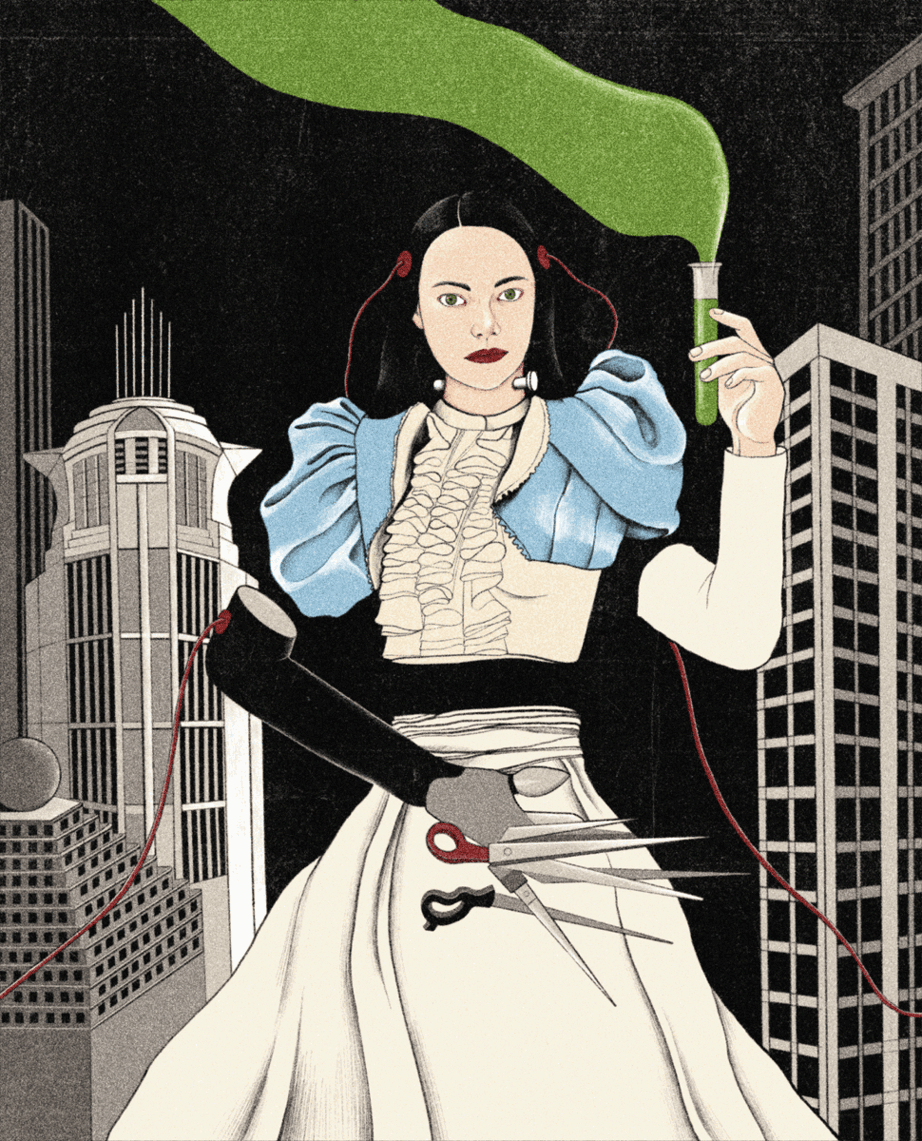When you wish upon a unicorn
“Why should you worry if he grows or not, Joe?” says Mr. Kandinsky, the old East End tailor in Wolf Mankowitz’s 1953 novel “A Kid for Two Farthings” (Bloomsbury: 128 pp., $14 paper), to his 6-year-old charge. “Take everything for what it is; don’t try to improve it, Joe. A chicken is a chicken. A man is a man. A little unicorn is a little unicorn. It’s enough.”
Though the unicorn in question is most likely a sickly goat with one nubbin of a horn -- whom Joe discovered at an animal market alongside dog-sellers and someone known as the Eel King -- Mr. Kandinsky doesn’t shatter the story the boy has spun around the creature. “A little unicorn is a little unicorn” crystallizes the tailor’s worldview, which somehow balances a generous capacity for whimsy (he’s the one who told Joe about unicorns in the first place) with an unblinkered take on what the real world has to offer. It’s a sigh that somehow admits the marvelous.
“Life is all dreams -- dreams and work,” Mr. Kandinsky tells Joe -- an apt summation of this slim, satisfying book.
A seamless blend of child’s-eye magic realism and the jobbing world of London’s Fashion Street, “A Kid for Two Farthings” is a promising start to Bloomsbury’s Ex Libris line, “a new library of books from the early twentieth century chosen by readers for readers.” (The last part of the claim is buttressed by blurbs from blogs, URLs included). First published 56 years ago, “Kid” is technically a little late to be early, but it conjures a time and place that feels remote -- a mostly Jewish milieu of garment workers and sign writers and prizefighters, of “Shafchick’s vapour baths” (containing “the hottest room in the world”) and baigels and ads on sandwich boards. Here, the height of technology is the Superheat Patent Steam Presser that Mr. Kandinsky covets: “You put in your trousers -- so. Close it -- so. Press a handle. Pouf. Up comes the steam. Open. There is your trousers pressed. No smell, no consumption.”
“Kid” brims with humor and verbal dash. Some of this is thanks to the close third-person POV that Mankowitz often employs, giving us a 6-year-old’s perspective: “He knew that Moses was an Egyptian priest, that the Chinese invented fire-works, that Trotsky was the best revolutionary, and that pregnant was going to have a baby.” Joe’s character and observations are melded together in a way that feels both spontaneous and absolutely right. Tracking a single image is useful. In an early scene, he buys a “twopenny slice of melon” and imitates the mannerisms and language (“saying ‘Blast’ and ‘Bloody’ ”) of the adults in the market who are supping on jellied eels. Later, on the first day of spring, the sun is described as “ripe and heavy like a solid gold watermelon”; still later, as Joe attends his first wrestling match (the book’s terrific climax -- Mankowitz would later co-write the “Dr. No” screenplay), he sits “with his seat tipped up to see over the head of the man in front. The man had a head like a smooth water-melon with a bit of hair round the edges, pasted down with oil as if painted.”
The adults come to life in a similarly subtle and true fashion as well, scraps of dialogue and small details building up over the book’s short span with considerable emotional force. As vivid and human as Mr. Kandinsky is the character of his assistant, Shmule, a wrestler whose mind is constantly on his physique, his training and his upcoming matches -- particularly a showdown against Python Macklin, whose name is generally preceded by “the dreaded.” He’s a perfectly calibrated mix of confidence, folly and fear, a figure at once comic and heroic. He’s so fixated on his upcoming bouts that even something like shrugging his shoulders reminds him of his body and triggers a frenzy of muscle flexing. (It’s funnier when you read it, trust me.) Mr. Kandinsky calls Shmule “Maccabaeus,” the Hebrew for his grappling name, “The Hammer,” which itself gets abbreviated to the Hebraic “Ham.”
The local color brings with it not just humor; a steady sadness permeates these pages. Joe’s father has been in Africa for the past year, “with two suitcases and a Madeira hat for the hot weather,” and his absence wears down Joe’s mother, a hat trimmer. (“For how long?” she replies, when complimented on her appearance. “How long is anyone pretty?”) Indeed, Joe invests the alleged unicorn with all sorts of perilous hopes -- naming it “Africana” and figuring that the woebegone beast’s solo horn, though shrimpy, is big enough for “five or six wishes,” which he spends on those he loves.
Africana spurs Joe’s imagination to even greater heights. With a real live unicorn at his side, he conjures adventures that make the workaday world recede. He imagines riding Africana through the jungle, “where they fought a lion, two tigers, a rogue elephant, a dreaded python, and a cannibal king.” Then, “down by the lavatory,” they arrive at the lost city: “In the distance it looked like a shirt factory, with hundreds of cupolas all made of gold shining in the sun.”
But rather than replace the world of Fashion Street, Joe’s flights of fancy coexist with reality, or rather, they’re shaped by it. A good kid and a tough egg (“a champ in the making,” Shmule’s trainer says), Joe is too young to wallow in self-pity, to view the gritty existence around him as anything but an adventure, but he can’t help being affected by it.
And the reason his unicorn is allowed to exist by the adults around him, without condescension?
It’s because they realize that his yearning is indivisible from their own.
Park’s novel, “Personal Days,” was recently named a finalist for the Asian American Literary Award. Astral Weeks appears monthly at latimes.com/books.
More to Read
The biggest entertainment stories
Get our big stories about Hollywood, film, television, music, arts, culture and more right in your inbox as soon as they publish.
You may occasionally receive promotional content from the Los Angeles Times.






